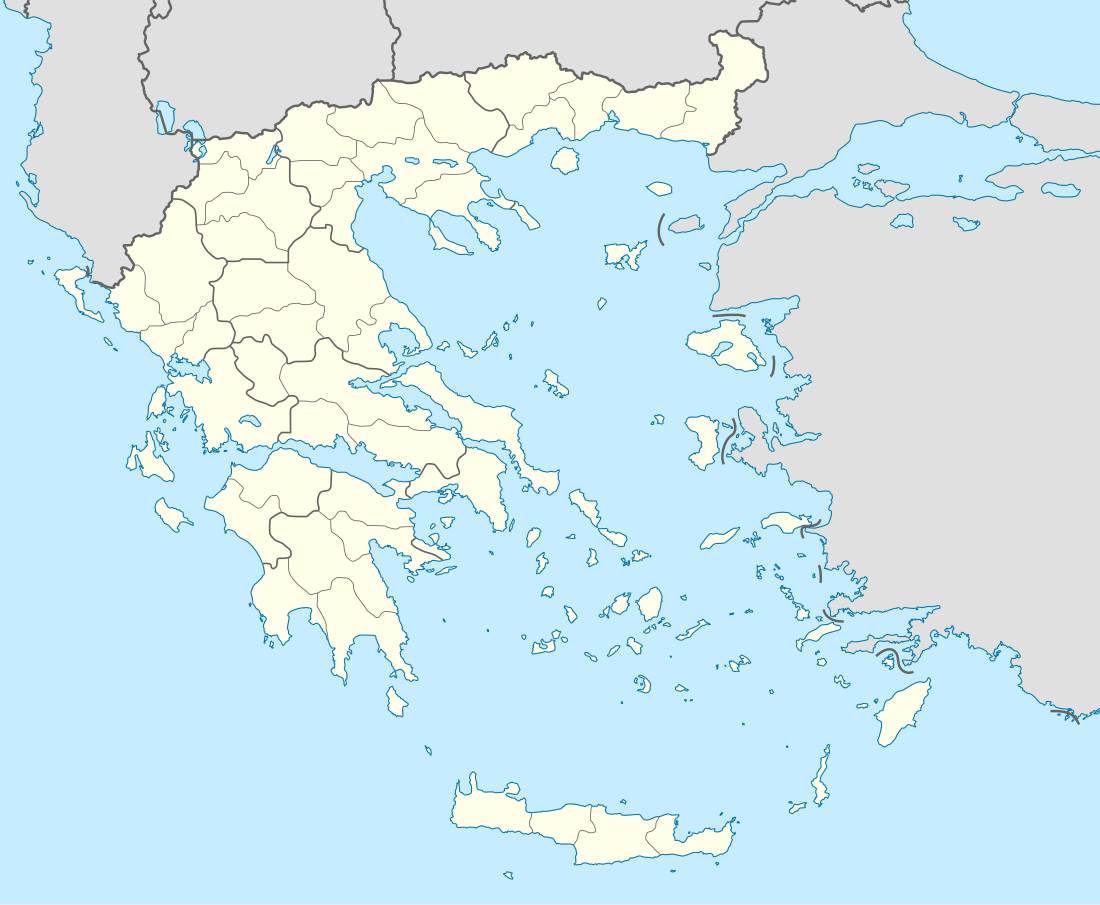Zagora, Greece
Zagora (Greek: Ζαγορά) is a village and a former municipality in Magnesia, Thessaly, Greece. Since the 2011 local government reform it is part of the municipality Zagora-Mouresi, of which it is the seat and a municipal unit.[2] The municipal unit has an area of 96.101 km2.[3]
Zagora Ζαγορά | |
|---|---|
 Zagora Location within the regional unit  | |
| Coordinates: 39°27′N 23°6′E | |
| Country | Greece |
| Administrative region | Thessaly |
| Regional unit | Magnesia |
| Municipality | Zagora-Mouresi |
| • Municipal unit | 96.1 km2 (37.1 sq mi) |
| Elevation | 458 m (1,503 ft) |
| Population (2011)[1] | |
| • Municipal unit | 3,334 |
| • Municipal unit density | 35/km2 (90/sq mi) |
| Community | |
| • Population | 2,251 (2011) |
| Time zone | UTC+2 (EET) |
| • Summer (DST) | UTC+3 (EEST) |
| Postal code | 370 01 |
| Area code(s) | 24260 |
| Vehicle registration | ΒΟ (Beta Omicron) |
Location
Zagora is located north of Volos and west of Chorefto and is connected to the former by Greek National Road 34.
History
First mentions of the settlement under its current name come from the 13th century. In the 14th century Magnesia came under the control of the Republic of Venice and the Catalans
The Venetian and Catalonian connections proved to be fruitful for the Zagorians. A large fleet was constructed in Zagora's port, Chorefto, and extensive trade of silk begun. The Zagorian galleys reached as far as West Africa and Scandinavia.
Etymology
The name is derived from the Greek term for "animal market" (Greek: Ζωαγορά). There was a large annual market where animal from as far as Romania and Egypt were bought and sold.
Places of interest
The library of Zagora, is known for its collection of rare books. The school of Rigas Feraios or Hellenic Museum as it is known, is the oldest school on Pelion. Rigas Feraios was among its students.
Education and commercial activity
Zagora has a primary and a secondary school, five churches, six coffee houses, two bakeries, two banks, a post office, and seven squares.
Historical population
| Year | Town population | Municipality population |
|---|---|---|
| 1981 | 2,841 | - |
| 1991 | 2,410 | 3,922 |
| 2001 | 2,389 | 3,829 |
| 2011 | 2,251 | 3,334 |
Notable people
- Patriarch Callinicus IV of Constantinople
- Yannis Kordatos, scholar
- Alexandros Pantos, founder of Panteion University
Footnotes
- "Απογραφή Πληθυσμού - Κατοικιών 2011. ΜΟΝΙΜΟΣ Πληθυσμός" (in Greek). Hellenic Statistical Authority.
- Kallikratis law Greece Ministry of Interior (in Greek)
- "Population & housing census 2001 (incl. area and average elevation)" (PDF) (in Greek). National Statistical Service of Greece.
References
- Kordatos, Ioannis (1977). Η Επανάσταση στην Θεσσαλομαγνησία το 1821 [The Revolt in Thessalomagnesia in 1821] (in Greek). Athens: Epikairotita.CS1 maint: ref=harv (link)